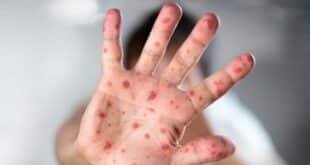World Health Day, 2025, shines the spotlight on maternal care and newborn care. It reminds us that each life deserves to start healthy.
Credit : Shutterstock, Maryna_Auramchuk
The global spotlight this year is on maternal and newborn health – and for good reason
World Health Day takes place every year on 7th April. This date celebrates World Health Organization’s founding and puts a spotlight one important issue. And this year’s focus couldn’t be more vital – the theme for 2025 is “Healthy beginnings, hopeful futures”, shining a light on the health of mothers and newborns.
Why maternal and newborn healthcare is more important than ever before in 2025
It’s a timely reminder of just how fragile those first days – and the lives that begin in them – really are. WHO estimates that close to 300 000 women die every year from complications related to pregnancy and childbirth. This is the equivalent of nearly 800 mothers per day. And for babies, the picture is even more heartbreaking – over 2 million die within their first month of life, while another 2 million are stillborn.
It means that somewhere in the globe, about 7 seconds pass without a death being prevented.
World Health Day 2025 will focus on maternal and postnatal health care.
The 2025 campaign doesn’t only aim to raise awareness. It’s about pushing governments and health systems to act – to make sure that pregnancy and birth aren’t life-threatening experiences, and that women get the support they need long after delivery.
That means access to skilled care, proper facilities, education on nutrition, avoiding harmful substances, and – importantly – mental health support. Motherhood is not limited to the birthing room.
Let’s not lose sight of the big picture. Supporting women through pregnancy, and beyond, helps children flourish, families thrive, and communities become resilient. It’s all interconnected.
Does the world do enough to protect mothers, newborns and babies?
Short answer: no. WHO reports that most countries have fallen behind in reducing maternal and infant deaths. Four out of five countries are not on track to meet their 2030 targets, and another third will miss their newborn survival goals.
That’s why World Health Day 2025 is calling for urgent change – from more investment in healthcare, to fairer access for all women, regardless of income or geography.
Because behind every statistic is a real person – a mother, a baby, a family – and a future that depends on them.
More World News
 Costa News Spain Breaking News | English News in Spain.
Costa News Spain Breaking News | English News in Spain.







